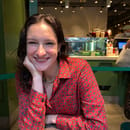I am no expert, but as I’ve aged and developed as a woman, I’ve taken an increasing interest in feminism. Unaware and overwhelmed with how to commence the exploration of this vast, historic, and complex subject, I first turned to literature. Yet, my initial searches of seminal feminist texts only left me feeling daunted. Although A Vindication of the Rights of Women, The Feminine Mystique, and The Second Sex are undoubtedly progressive and influential pieces of writing, I didn’t necessarily feel apt or motivated to delve into the suggested lengthy texts whose content seemed abstruse and dated. Through friends and social media recommendations, I eventually discovered a plethora of literature both in and outside of the canon that helped shape and expand my ideas of womanhood and gender. Accessible and global, I share my top ten essential pieces of literature for feminists as well as anyone wanting to learn and simply enjoy a good read.
The Awakening by Kate Chopin (1899)
Although written over one hundred years ago, the lack of opportunity and escape from society’s set confines for women still feel relevant. Chopin chronicles a confident yet confused female character, who is both wife and mother, attempting to escape her determined roles by finding independence in herself and her sexuality. Charlotte Perkins Gilman’s The Yellow Wallpaper is a short story if you’d prefer fewer pages, only written a few years before and treating very similar themes.
A Room of One’s Own by Virginia Woolf (1929)
Although Woolf’s modernist texts can be quite mystifying and laborious to read, I found A Room of One’s Own to be an approachable educational essay about women’s limited access to creativity. Based on two lectures she gave, this text offers a historical and argumentative perspective on women’s inability to prosper, especially in the literary field, to the same extent as men.
Daddy by Sylvia Plath (1962)
I’d recommend the poetry collection Ariel in its entirety, but one poem that holds particular significance is Daddy. Even without much knowledge or experience with poetry, Plath’s point will always be clear. She depicts feelings of oppression and pain as a woman, especially regarding two men in her life: her father and husband.
The Woman Destroyed by Simone de Beauvoir (1967)
This book is for anyone who knows the name Simone de Beauvoir, but like me, was intimidated by some of her lengthier works. Divided into three sections, these stories follow imperfect and thus relatable middle-aged women grappling with their age, relationships, professions, purpose, and love.
On Women by Susan Sontag (70s)
Disclosure: I loved the first half of these essays but didn’t find the second to be entirely relevant, finding difficulty in determining what exactly about them was on women. Regardless, Susan Sontag’s writing style is captivating and convincing, and I found myself nodding along to the pages of the beginning of this collection. I particularly enjoyed The Double Standard of Ageing and The Third World of Women.
The Color Purple by Alice Walker (1982)
Although turned into a film recently released in theatre, this novel is certainly worth reading before seeing the movie. The protagonist’s writing style, showcased through an epistolary format, perfectly mimics her development as a character. Strong female characters are at the center of this work, fighting against suffering and unjust circumstances, yet laced with redemption and hope.
We Should All Be Feminists by Chimamanda Ngozi Adichie (2014)
A phenomenal essay by one of my favourite authors. It’s difficult to read and not wonder how everyone isn’t a feminist yet. Adichie is funny and light while determined to convince. She doesn’t blame yet calmly presents what needs to be done. Her argument comes in the form of a Ted Talk by the same name if you’d prefer a spoken version.
Kim Ji-Young, Born 1982 by Cho Nam-Joo (2016)
Feminism from a non-Western perspective is of equal importance, set with similar and distinct issues. Set in South Korea, this novel follows the life of a woman, presenting small and large acts of misogyny that accumulate and eventually lead to collapse. The novel is short, easy to read, and filled with facts, producing comprehensive fiction that reflects an unflattering yet genuine reality.
Girl, Woman, Other by Bernardine Evaristo (2019)
Published only a few years ago by British author Evaristo, the grand scope of the novel is ideal for those who want to learn from various perspectives. These twelve intertwined stories present distinct and varied experiences of being black and being a woman in England. Although the unique prose may seem odd at first, its poetic flow is one of the many reasons the novel is so engaging.
Ejaculate Responsibly: A Whole New Way to Think About Abortion by Gabrielle Blair (2022)
The title gives this one away. Last year, Gabrielle Blair published this short book arguing that the way to decrease abortion is to prevent unwanted pregnancy, which should be done by making men more responsible for their ejaculation and therefore taking a more active role in birth control. Easy to follow and quick to read, this piece of non-fiction cemented and expanded my ideas and beliefs about abortion, sex, and contraception.
Other honourable mentions: I am Malala by Malala Yosafzai and Christina Lamb, Breasts and Eggs by Mieko Kawakami, and Happening by Annie Ernaux.


